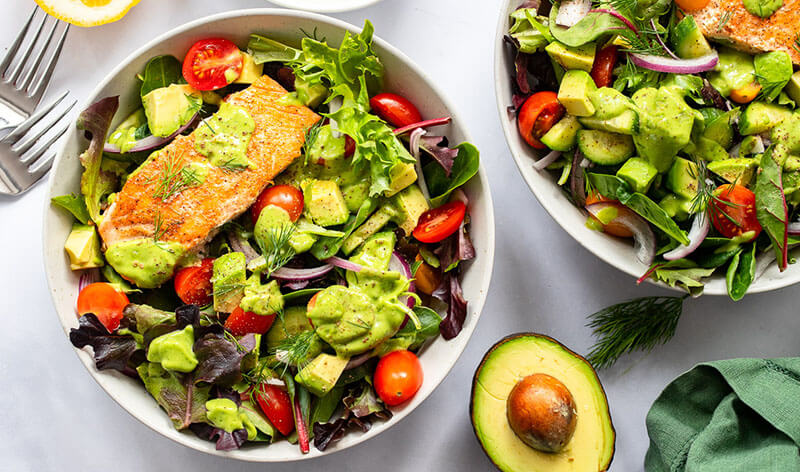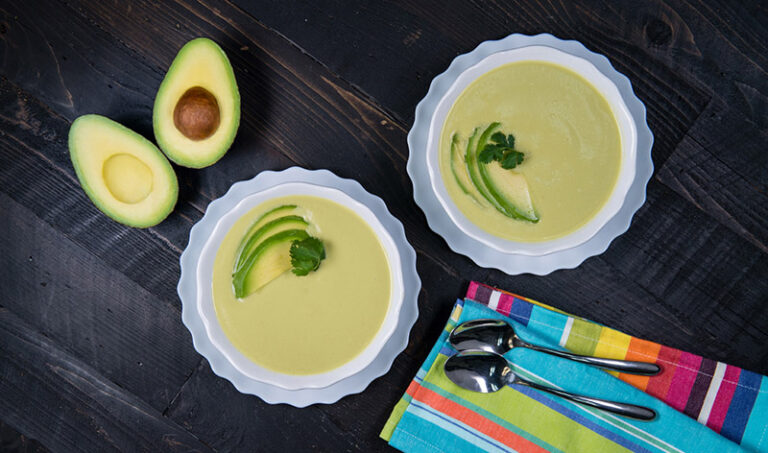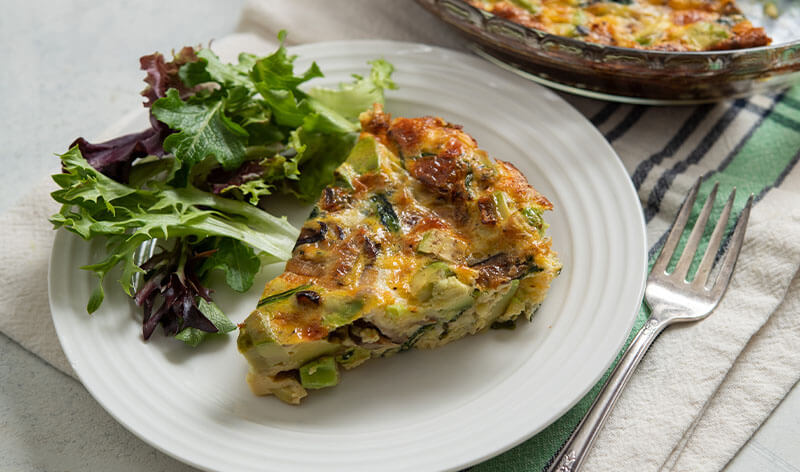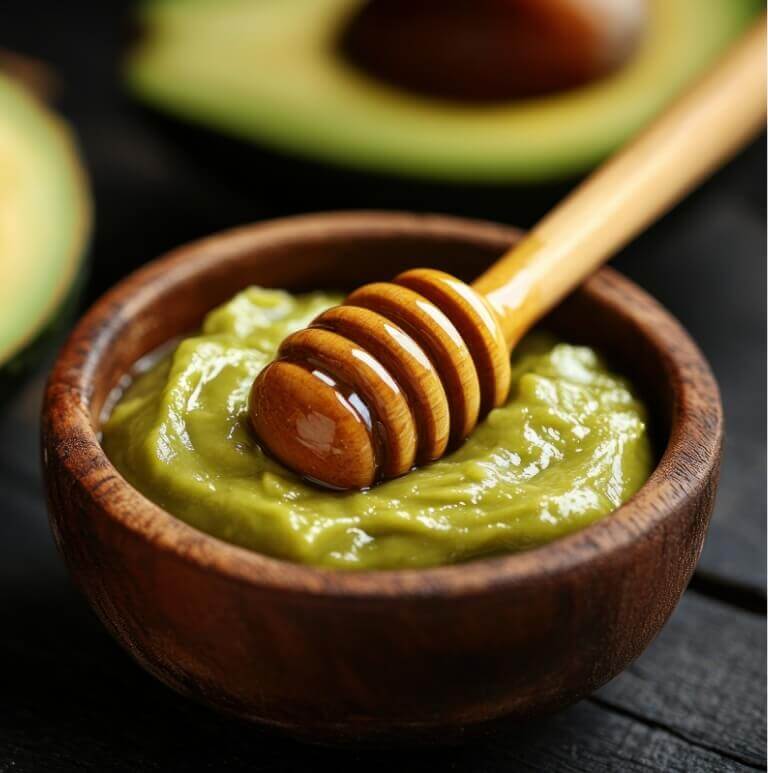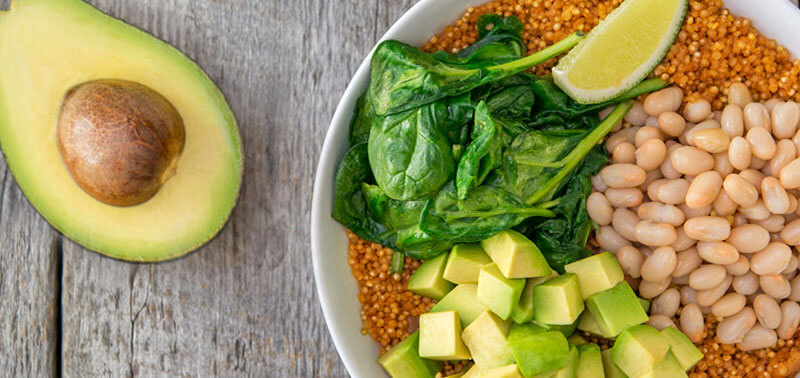The nutrients in avocados may support scalp hydration and overall hair health.
They could help nourish the scalp and contribute to hair’s natural moisture and manageability. While no single food or ingredient can directly strengthen hair, prevent breakage, or promote growth, including nutrient-dense foods like avocados in a balanced diet can help create the foundation for well-nourished, resilient hair.
Nutrients in Avocados That May Support Hair Health
- Scalp Hydration: The 5 g of monounsaturated fats in every 50 g serving of avocados may help support moisture retention, which is vital for maintaining a well-hydrated scalp.
- Nutrient Support for Hair Follicles: Vitamins B5 and E contribute to normal cell function and help protect cells from oxidative stress, including those in the scalp. Avocados contain 15% DV of vitamin B5 and 6% DV of vitamin E.
- Antioxidant Protection: Avocados contain vitamin E and other antioxidants that help protect cells from oxidative stress, which can affect scalp health. Avocados are a good source of vitamin B5 (pantothenic acid), with 15% of your DV in each 50 g serving. A serving of avocado also provides 6% DV of vitamin E.
- Supports Scalp Circulation: Vitamin E, folate, and healthy fats contribute to overall nutrient metabolism and normal blood flow, both of which play a role in maintaining a healthy scalp environment. A 50 g serving of avocados contains 6% DV vitamin E, 10% DV folate, and 6 g of healthy fats.
- Moisture Retention in Hair: Avocado oil is primarily fatty acids that help coat the hair, reducing moisture loss and improving manageability. These include oleic acid, palmitic acid, and linoleic acid.
- Hair Softness and Shine: Regular use of avocado oil as part of a conditioning routine may help support hair’s smoothness and natural shine.
How to Use Avocados for Hair Care
- Dietary Benefits: Eating avocados as part of a balanced diet provides essential nutrients that may support overall skin and scalp health.
- Topical Application: You can mash avocado for a conditioning hair mask or massage avocado oil into the scalp to help support hydration.
- DIY Avocado Hair Mask: Mix one ripe avocado with 1 Tbsp. avocado oil, 1 Tbsp. honey, and 1 egg yolk. Apply to damp hair, leave on for 20 minutes, then rinse thoroughly.
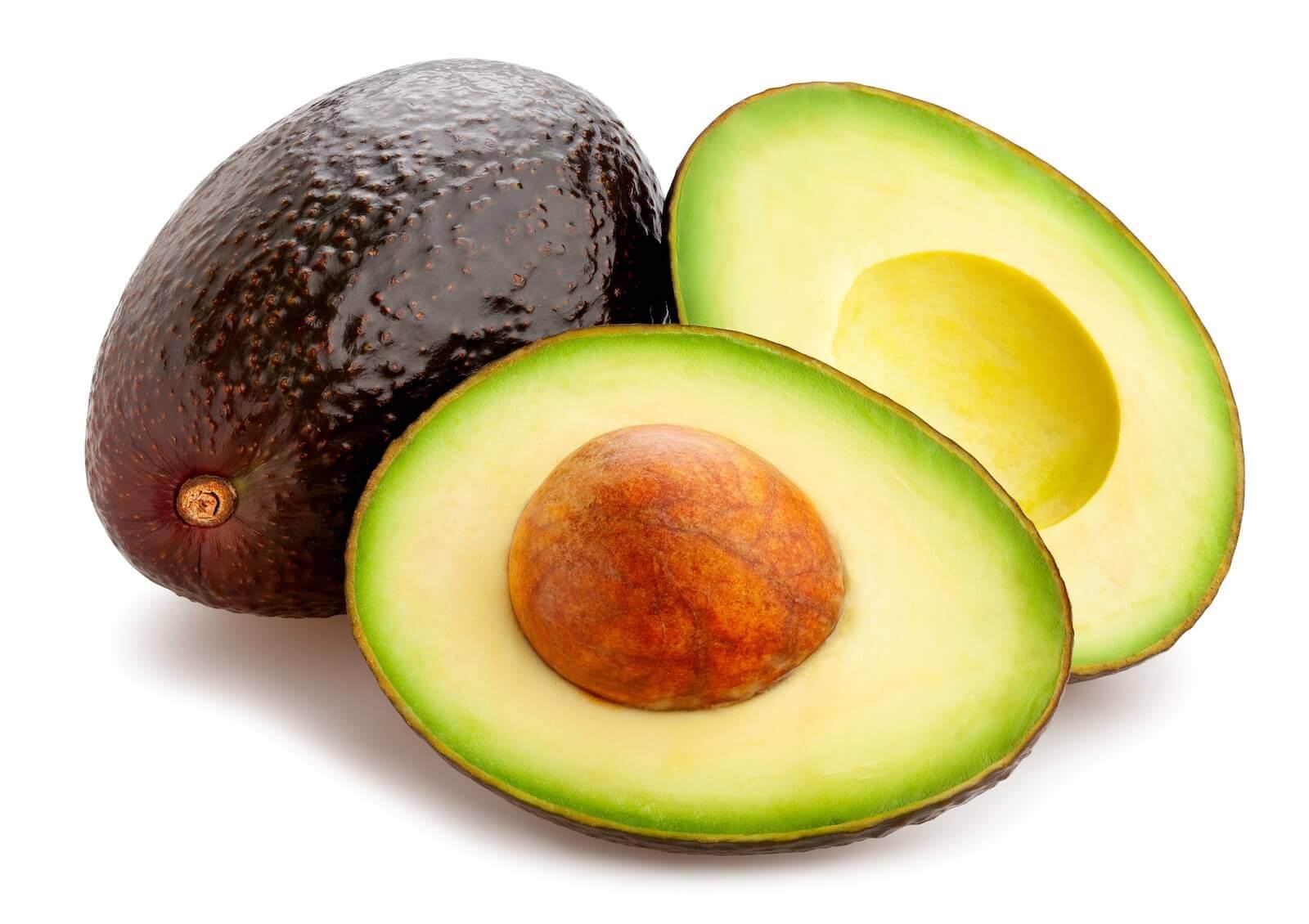
The Benefits of Avocado for Healthy Hair
Who doesn’t love a good avocado? Whether smashed on toast or blended into a smoothie, this creamy green fruit is a delicious and healthy addition to your diet. But did you know avocados can also be a game-changer for your hair?
If you’re looking for a natural way to nourish your locks, keep reading — we’ll break down why the nutrients in avocados might just provide the secret ingredient you’ve been looking for.

How The Nutrients in Avocados Support Hair Health
The nutrients in avocados may help support a healthy scalp. The 6% DV vitamin E, and 5 g of monounsaturated fats in each 50 g serving of avocado may help nourish the scalp and strengthen hair at the root, creating the ideal conditions for healthy, vibrant growth.
Avocados and Scalp Health
A healthy scalp can help your hair look better. When the scalp lacks moisture or is exposed to environmental stressors, it may become dry and flaky. This can lead to dull hair or visible dandruff. While store-bought conditioners and moisturizers can treat surface-level dryness, a skin-friendly diet may also support your scalp.
Avocados contain some of the nutrients that may help keep your skin supple and hydrated.
- Monounsaturated fats: These healthy fats help support the skin’s natural lipid barrier, which helps retain moisture and prevent excessive dryness. A 50 g serving of avocado contains 6 g of healthy fats.
- Vitamin E: This fat-soluble vitamin functions as an antioxidant that helps protect cells from oxidative stress. Like other areas of the skin, the scalp is exposed to environmental factors such as UV rays which generate free radicals. These molecules can cause the internal structures of skin cells to deteriorate, leading to drier, less supple skin. One 50 g serving of avocado provides 6% DV of Vitamin E.
- Antioxidants: In addition to vitamin E, a 50 g serving of avocado contains multiple carotenoids and 93.5 mg of polyphenols, two antioxidants. Plant-derived antioxidants can counteract the effects of free radicals on your skin, possibly contributing to its health.
The nutrients in avocados can help support a good scalp environment (a scalp without excessive oil or dead skin cell build-up) for new hair growth. Adding avocados to your diet can help you get more nutrients that support your skin’s natural glow.
Avocados and Hair Strength
Avocados provide several nutrients involved in maintaining the structure of hair strands, helping to support their overall health. Though no direct links have been found between avocado consumption and hair health, these nutrients and vitamins contribute to processes that encourage healthy hair growth.
Avocados contain some of the nutrients that may help keep your skin supple and hydrated.
- Vitamin B5 (pantothenic acid): This vitamin helps the body break down fats for energy and supports important cell functions. It’s often added to hair care products because it helps keep hair smooth and strong. Avocados are a good source of vitamin B5, with 15% DV in every 50 g serving.
- Vitamin E: Besides its role as an antioxidant, vitamin E contributes to cell repair after oxidative damage. This may help support cells within the scalp and hair follicles, which are responsible for producing hair strands. Avocados contain 6% DV vitamin E per 50g serving.
- Monounsaturated fats: These fats provide essential fatty acids that contribute to healthy cell membranes, including those in the scalp and hair follicles. This may contribute to overall hair appearance. Avocados provide 5 g of monounsaturated fats in every 50 g serving.
A balanced diet can help the new hair you grow to be shiny, smooth, and strong. But remember that taking regular care of your hair is equally important–wash often, and keep it detangled to enhance shine.
Can The Nutrients in Avocados Help With Hair Growth?
While no single food can directly stimulate hair growth, a nutrient-dense diet can help support a healthy scalp environment, which is necessary for maintaining normal hair growth cycles.
- Folate (vitamin B9): Avocados provide 10% DV of folate per 50 g serving, a B vitamin that contributes to normal cell function and tissue growth. Folate is also involved in red blood cell formation, which helps support oxygen transport throughout the body, including to the scalp. While proper circulation is vital for delivering nutrients to hair follicles, more research is needed to determine the direct effects of folate on hair growth.
- B vitamins: Avocados contain several B vitamins, including 6% DV of B6 per 50 g serving, which is involved in protein metabolism. Since hair is primarily made up of keratin, a protein, maintaining adequate protein intake is essential for normal hair formation.
- Healthy fats: The 6 g of monounsaturated fats in every 50 g serving of avocado help provide essential fatty acids that support overall skin health, including the scalp.
Diet and regular self-care play significant roles in hair growth. To promote growth, wash your hair often, massage your scalp, and avoid heat-based styling.
Is Avocado Oil Good for Hair?
Avocado oil isn’t just a kitchen staple — it’s also a popular ingredient in hair care products. While many people use avocado oil for softer, more manageable hair, scientific research on its direct effects is still limited.
If you have fine hair, most hair oils may weigh down your strands. Avocado oil is lightweight enough that it may provide extra moisture without leaving behind greasy residue. This makes it a popular ingredient in over-the-counter hair care products and a standard recommendation for DIY hair masks.
Though research is still ongoing regarding the efficacy of avocado oil as a hair care product, it has the potential to support shiny, smooth hair.
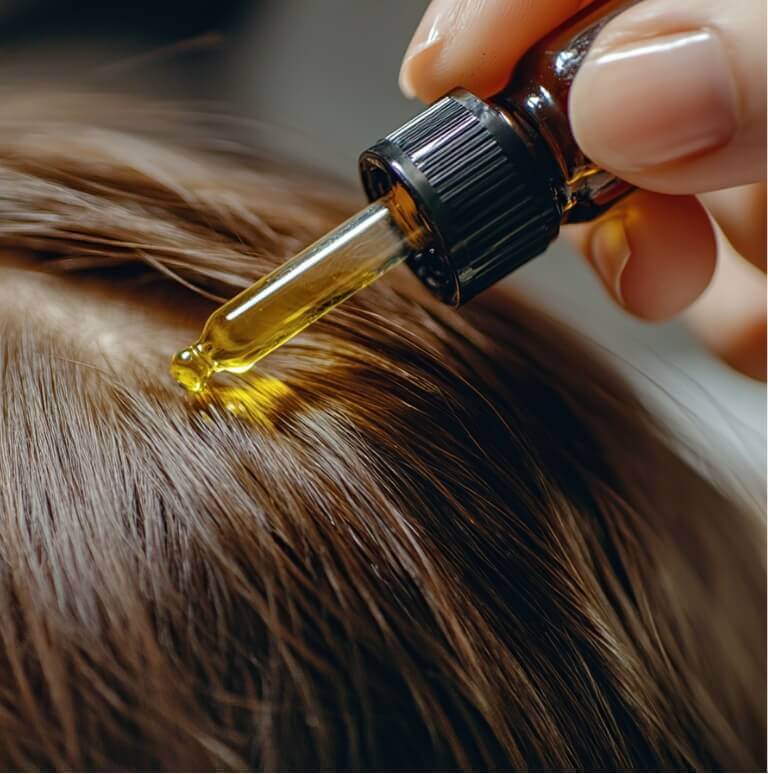
How Avocado Oil Protects Hair from Damage
Daily exposure to heat, UV rays, and styling products can strip the hair of its natural moisture, leaving it dry, brittle, and prone to breakage. When used topically, avocado oil may support hydration in the skin and help maintain the scalp’s natural moisture barrier. Unlike heavier oils, its lightweight texture allows it to penetrate strands without leaving a greasy residue, making it a practical option for taming frizz and reducing moisture loss.
Many people incorporate avocado oil into hair masks, scalp treatments, and deep-conditioning routines to help improve manageability and enhance shine. If your hair feels brittle or lackluster, adding avocado oil to your routine may provide the hydration it needs to look shiny and strong.

